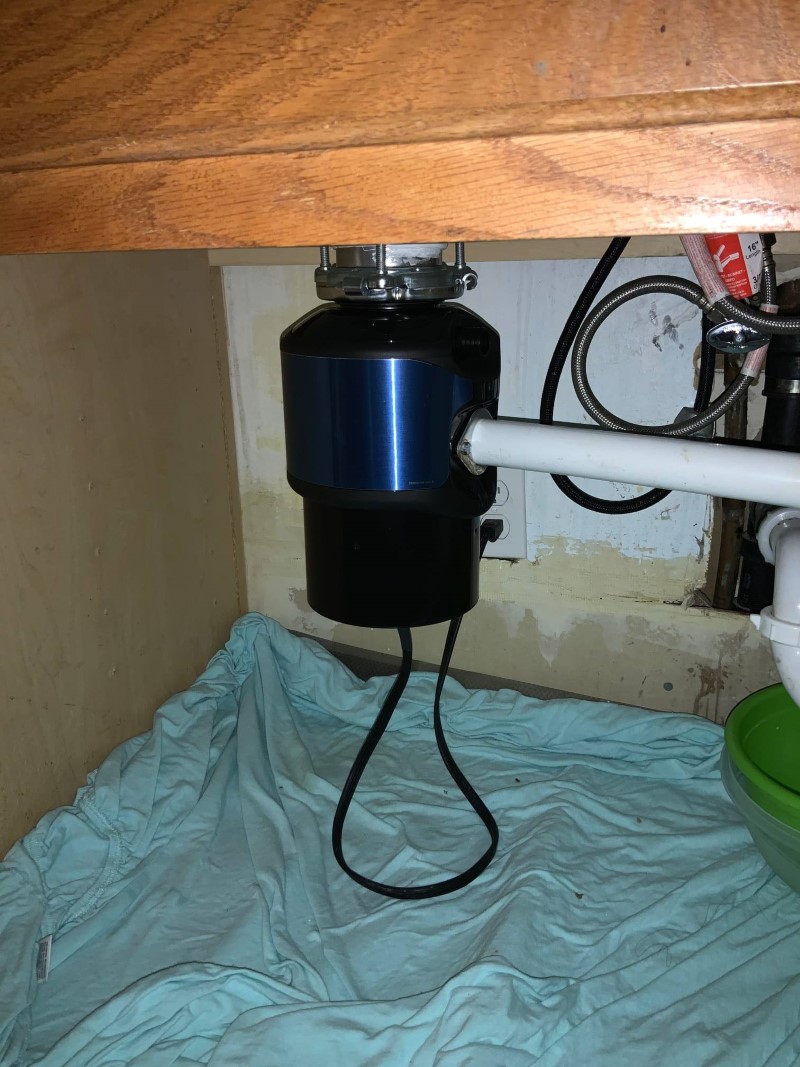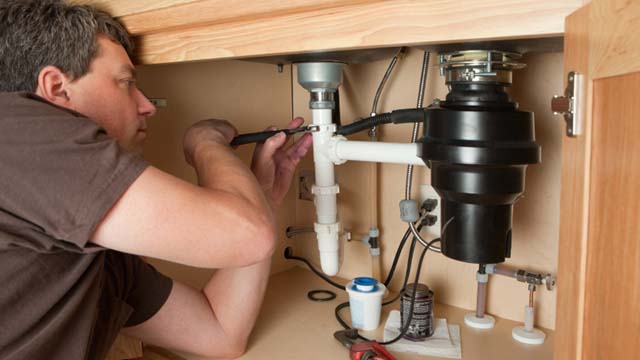Effective Techniques for Repairing a Dripping Garbage Disposal
Effective Techniques for Repairing a Dripping Garbage Disposal
Blog Article
What're your concepts about Why Is ?

Waste disposal unit are important cooking area devices that assist in getting rid of food waste successfully. However, a dripping garbage disposal can be a frustrating and messy issue to deal with. Fortunately, several leaks can be dealt with conveniently with a few simple steps. In this post, we will discuss exactly how to take care of a dripping waste disposal unit efficiently.
Intro
Waste disposal unit are installed under cooking area sinks and are created to shred food waste right into smaller pieces, enabling it to pass through the plumbing system easily. While these devices are usually reliable, leaks can occur over time as a result of wear and tear, loose connections, or damages to the unit.
Step-by-Step Guide to Repairing a Leaking Garbage Disposal
Turn Off the Power
Prior to attempting any repairs, ensure that the power to the garbage disposal system is switched off to prevent the danger of electrical shock.
Find the Leak
Recognize the precise location of the leak and identify the reason
Tighten Links
Use a wrench to tighten up any loose connections between the disposal unit and the pipes system.
Change Seals or Gaskets
If the leak is because of worn seals or gaskets, eliminate the old components and replace them with brand-new ones.
Patching Splits or Openings
For cracks or openings in the disposal device, usage epoxy or an appropriate patching product to seal the broken area.
Determining the Resource of the Leak
Before attempting to fix a dripping garbage disposal, it is necessary to identify the source of the leakage. This can typically be done via visual inspection or by carrying out easy examinations.
Visual Examination
Examine the waste disposal unit unit carefully for any kind of indicators of water leak. Pay close attention to locations around seals, gaskets, and link points.
Testing for Leaks
One method to evaluate for leakages is by running water with the disposal device and looking for any type of visible signs of leakage.
Typical Sources Of Leaks in Rubbish Disposals
Worn Seals and Gaskets
Seals and gaskets play a vital duty in avoiding water from leaking out of the waste disposal unit. In time, these components can weaken, resulting in leaks around the disposal system.
Loose Links
The connections in between the waste disposal unit and the pipes system can end up being loosened over time, creating water to leakage out throughout procedure.
Splits or Holes in the Disposal Device
Physical damage to the garbage disposal, such as cracks or holes in the housing, can additionally cause leaks.
Tools and Materials Needed for Fixing a Dripping Garbage Disposal
Before starting the repair procedure, collect the required devices and products, consisting of a screwdriver, flexible wrench, plumbing technician's putty, substitute seals or gaskets, and epoxy or patching product for repairing cracks or openings.
Evaluating the Waste Disposal Unit After Repair Work
Once the fixing is full, check the garbage disposal by running water via it to make certain that the leak has actually been fixed.
Preventive Maintenance Tips to Stay Clear Of Future Leaks
To stop future leakages, it is vital to execute routine upkeep on your garbage disposal. This includes maintaining it tidy, preventing putting non-food things or hard things down the disposal, and regularly looking for leakages or other concerns.
Verdict
Finally, fixing a leaking waste disposal unit is a reasonably straightforward procedure that can be completed with fundamental tools and materials. By following the actions laid out in this post and practicing precautionary upkeep, you can keep your waste disposal unit in good working condition and stay clear of expensive fixings in the future.
HERE’S HOW TO FIX YOUR GARBAGE DISPOSAL
WHAT TO DO IF SOMETHING IS STUCK IN YOUR GARBAGE DISPOSAL
If the impeller won’t turn, there’s probably something stuck in the disposal. It could be a steak bone or peach pit, although plumbers report pulling all sorts of inappropriate objects out of disposals, such as bottle caps or aluminum foil. Make sure power to the disposal is off, and look inside to see if you can see the source of the jam.
Never stick your fingers in a disposal. Pull out anything you see with tongs or pliers.
If the disposal still won’t work, it may be time to call a plumber or consider buying a new disposal. GEM Plumbing & Heating is here for all of your garbage disposal needs.
WHAT TO DO IF YOUR GARBAGE DISPOSAL DRAIN IS CLOGGED
Take everything out from underneath your sink and put a bucket or other container under your disposal to catch any water that drains out. Disconnect your disposal from the power supply. If it’s plugged into a wall outlet, unplug it. If it’s hardwired into an electrical box, go to the electrical panel and turn off the breaker for the disposal. Pour ¼ cup of baking soda into the drain, followed by ½ cup of white vinegar. Give the solution a few minutes to fizz and do its work. Look into the disposal with a flashlight to see if you can see an object that might be causing the clog. If you see it, remove it using tongs or pliers. MORE TIPS ON DEALING WITH A CLOGGED GARBAGE DISPOSAL
Never use drain cleaner in a garbage disposal. It can damage the plastic parts inside the disposal. You can also be splashed with the caustic liquid while working to clear the clog. Beware! Never stick your fingers into a garbage disposal. Trust us — not a good idea. In many instances, your dishwasher drains through your garbage disposal. This allows the disposal to grind any large food particles that may be drained out of your dishwasher. There are some jurisdictions, however, where the plumbing code prohibits such a connection. WHAT TO DO WHEN YOUR DISHWASHER DRAINS THROUGH THE DISPOSAL
Run some water in the sink so your plunger has at least a ½-inch of water to create a seal and plunge vigorously up and down several times. You may need to repeat this several times. Run hot water down the drain to clear any residue that remains.

Hopefully you liked our excerpt on Why Is . Thank you so much for taking time to read through our short article. Do you know about another individual who is fascinated with the subject? Feel free to promote it. Thanks so much for your time invested reading it.
Book Now! Report this page